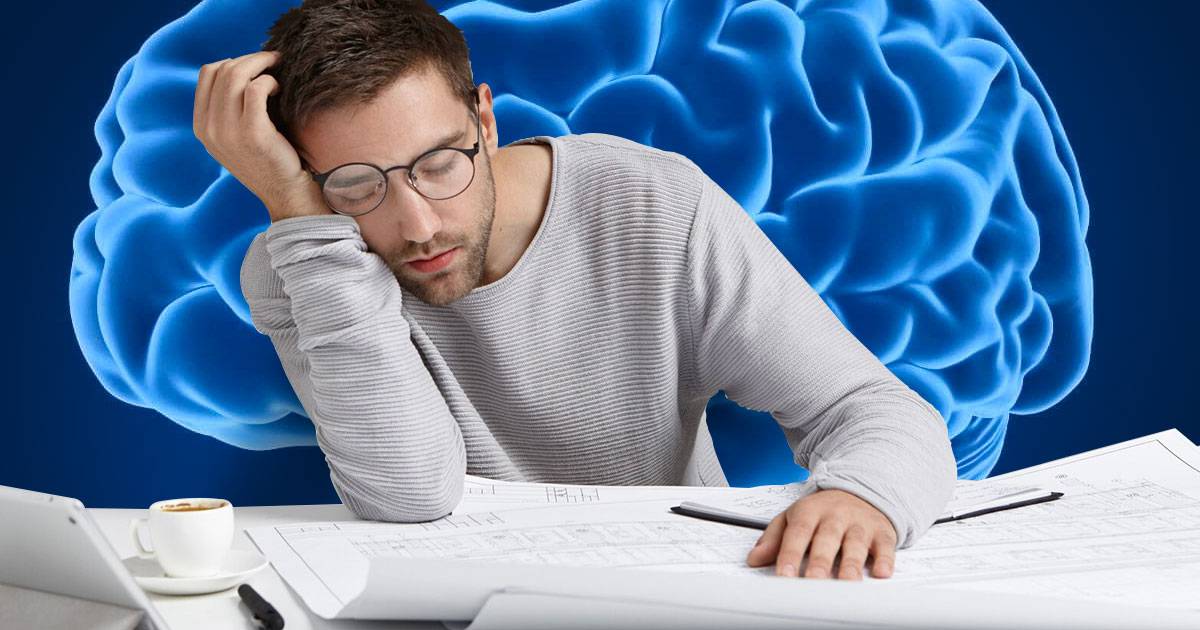Understanding the Link Between Narcolepsy and EDS

Excessive daytime sleepiness (EDS) is when someone feels very tired and sleepy during the day. It’s pretty common, impacting around 10–20% of people. Narcolepsy, a sleep disorder, is one of the main reasons some people have EDS. This article covers EDS, its link to narcolepsy, and how doctors identify and manage it.
What is excessive daytime sleepiness?
A person with EDS often feels very sleepy and tired all the time, even if they sleep enough. EDS is also called hypersomnia. Common symptoms include:
- feeling sleepy during the day
- sleeping a lot at night
- trouble waking up
- feeling confused
- feeling anxious
- feeling irritable and restless
- having low energy
- thinking slowly
- speaking slowly
- not feeling hungry
- seeing or hearing things that don’t exist (hallucinations)
- having trouble remembering things
Someone with EDS might feel the need to take naps often during the day, even at times when they shouldn’t, like during meals or at work. These naps usually don’t help make the sleepiness go away. EDS can make it hard for someone to do their everyday activities.
What is EDS in narcolepsy?
Narcolepsy is a long-term brain disorder that disrupts a person’s sleep and causes them to enter rapid eye movement (REM) sleep very quickly. The National Institute of Neurological Disorders and Stroke says that everyone with narcolepsy experiences excessive daytime sleepiness (EDS), which is often the most obvious symptom.. People with narcolepsy often have “sleep attacks,” where they suddenly feel overwhelmingly sleepy. These episodes of sleepiness can last a few seconds to several minutes and may occur many times throughout the day.
Other Causes of Excessive Daytime Sleepiness (EDS)
EDS, or excessive daytime sleepiness, can have several causes:
- Sleep apnea: This condition involves interruptions in breathing while sleeping, leading to poor sleep quality and EDS.
- Restless legs syndrome (RLS): RLS causes a strong need to move the legs, especially at night, which can disrupt sleep and cause EDS.
- Depression: People who are depressed frequently feel excessively sleepy during the day.
- Sleep deprivation: Not getting enough sleep can also cause excessive daytime sleepiness.
- Insomnia: This happens when someone struggles to fall asleep or stay asleep, leading to poor sleep quality and excessive daytime sleepiness.
- Narcolepsy: Often recognized by “sleep attacks,” narcolepsy is a frequent cause of EDS. Between these attacks, a person’s alertness may vary.
The exact cause of narcolepsy isn’t fully understood, but it may be related to low levels of hypocretin, a chemical that helps regulate wakefulness and REM sleep. This deficiency could be a key reason for narcolepsy symptoms.
How to Diagnose EDS
To diagnose EDS (excessive daytime sleepiness), a healthcare professional will ask about how long the person has been feeling overly sleepy, their sleeping habits during the week and weekend, how often they wake up at night, and if there have been any recent changes in their life that might affect their sleep. The goal is to figure out if the sleepiness is due to medical issues or lifestyle factors.
The doctor may do a physical check-up and run some lab tests to find any hidden health issues. They might also recommend a sleep study known as a polysomnogram (PSG), usually carried out in a hospital or sleep center, to track brain activity, eye and leg movements, heart rate, breathing, and blood oxygen levels during sleep. This helps identify if a condition like sleep apnea is causing the EDS.
If narcolepsy is suspected, the doctor might conduct a multiple sleep latency test (MSLT), or daytime nap study. This test checks how fast someone falls asleep in a quiet place during the day and how quickly they begin REM sleep. Falling asleep quickly and entering REM sleep in two or more naps could indicate narcolepsy.
Treatment for EDS
The treatment for EDS depends on what’s causing it.
If EDS is due to lifestyle choices, doctors usually suggest changes like:
- Sticking to a regular bedtime and wake-up schedule.
- Make sure the bedroom is quiet, dark, and kept at a cozy temperature.
- Removing electronics like TVs and phones from the bedroom.
- Stay away from large meals, caffeine, and alcohol before going to sleep.
- Stay away from tobacco.
- Exercising regularly and staying active during the day.
If a medical condition is causing EDS, the doctor will treat that condition first.
How to Treat EDS Due to Narcolepsy
Narcolepsy can’t be cured, but there are medicines that can help manage the symptoms. These include:
- Stimulants like Provigil (modafinil) and armodafinil help keep you awake.
- Amphetamine-like stimulants such as methylphenidate.
- Antidepressants, including tricyclics and selective serotonin reuptake inhibitors (SSRIs).
- Sodium oxybate.
- Wakix (pitolisant).
When to See a Healthcare Professional
If someone frequently feels very sleepy during the day, they should speak with a healthcare professional. This professional can help manage the symptoms and also try to find out what’s causing them. They may suggest visiting a sleep specialist, a doctor who specializes in diagnosing and treating sleep issues.
Knowing if Your EDS is a Symptom of Narcolepsy is Essential for Proper Treatment
If you’re frequently feeling overwhelmingly tired during the day, it’s important to take action and not ignore these signs. Feeling sleepy all the time isn’t just about lacking energy; it can seriously affect your daily life, safety, and overall health. Scheduling a visit with a healthcare provider can set you on the path to understanding the root of the problem, whether it’s a sleep disorder like narcolepsy or something related to lifestyle choices or other health issues.
Your doctor can guide you through the steps of diagnosis and treatment, which might include sleep studies to pinpoint the problem or adjustments in your daily habits to improve your sleep quality and reduce daytime sleepiness.
